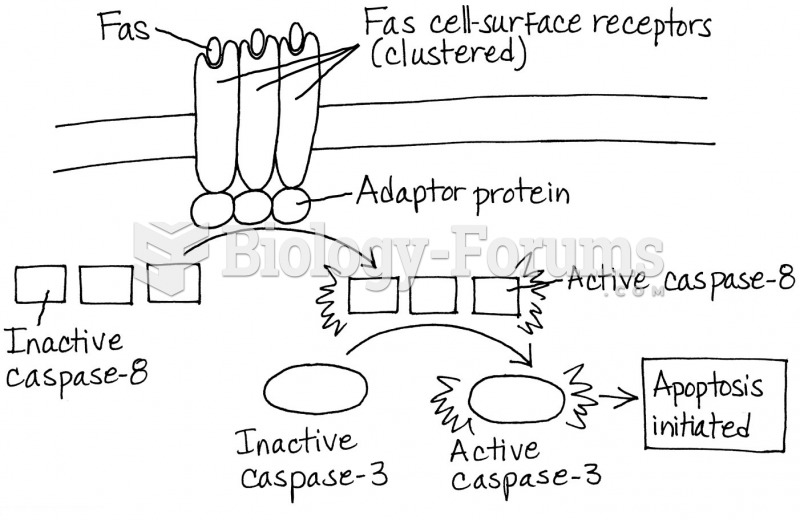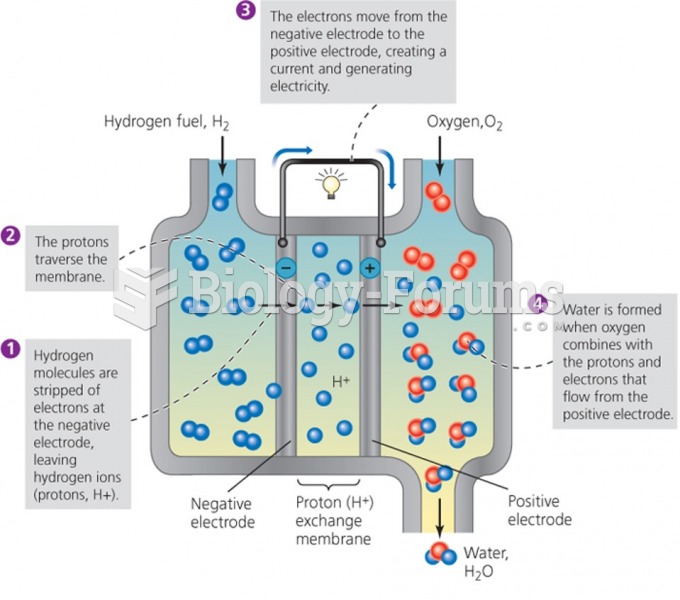|
|
|
Pink eye is a term that refers to conjunctivitis, which is inflammation of the thin, clear membrane (conjunctiva) over the white part of the eye (sclera). It may be triggered by a virus, bacteria, or foreign body in the eye. Antibiotic eye drops alleviate bacterial conjunctivitis, and antihistamine allergy pills or eye drops help control allergic conjunctivitis symptoms.
Only 12 hours after an egg cell is fertilized by a sperm cell, the egg cell starts to divide. As it continues to divide, it moves along the fallopian tube toward the uterus at about 1 inch per day.
When blood is exposed to air, it clots. Heparin allows the blood to come in direct contact with air without clotting.
The first oral chemotherapy drug for colon cancer was approved by FDA in 2001.
The first oncogene was discovered in 1970 and was termed SRC (pronounced "SARK").






